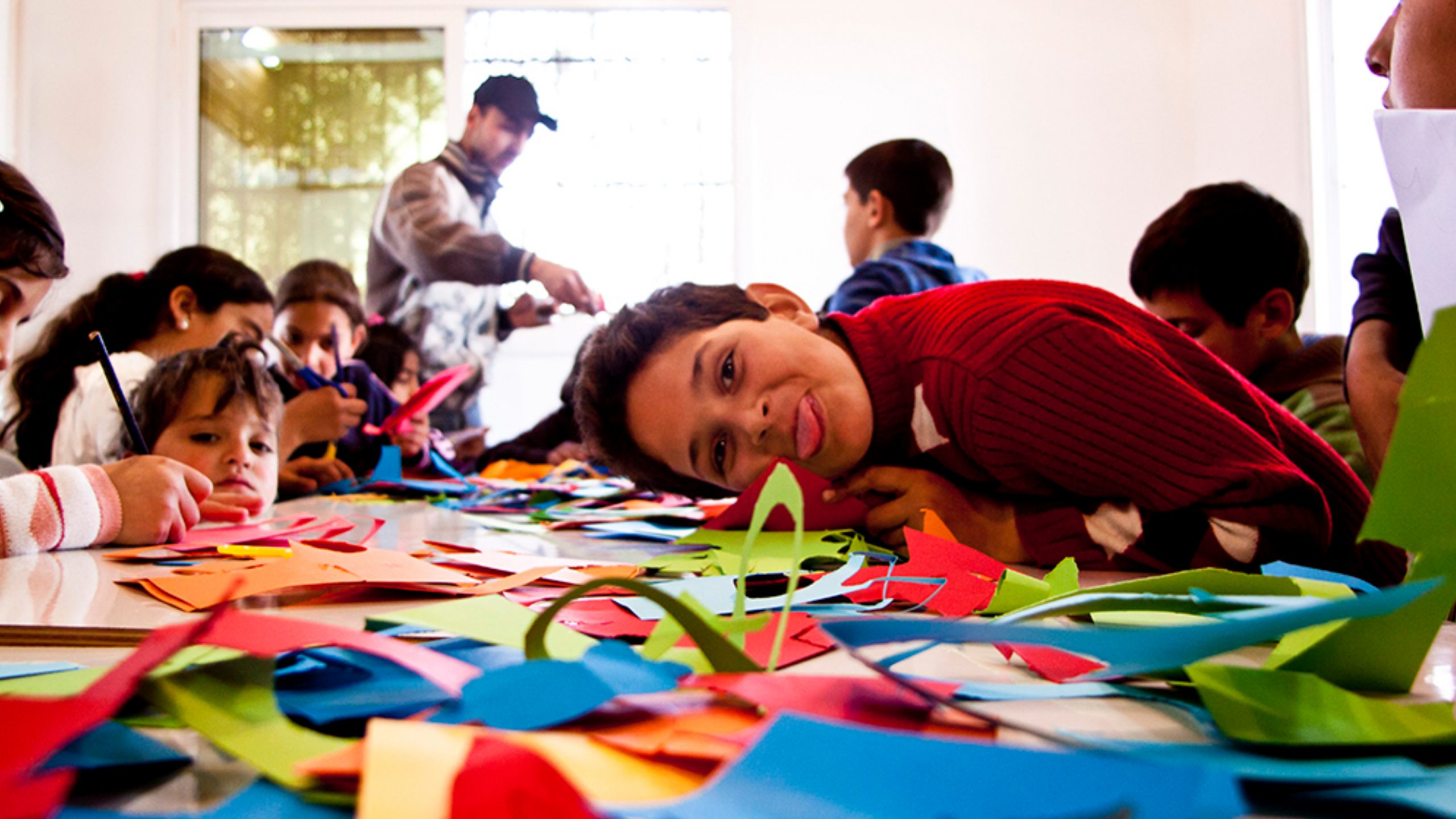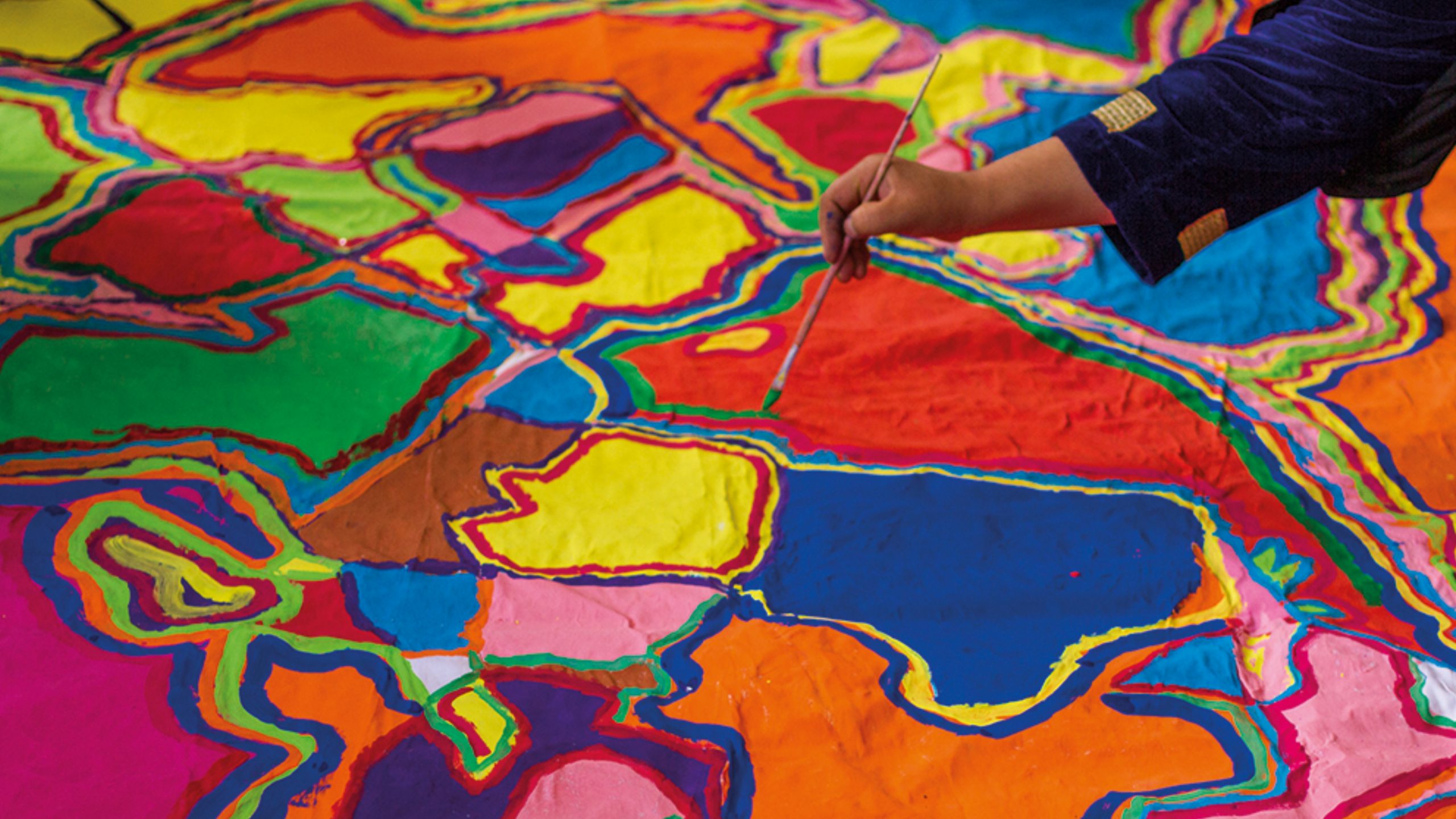
Creart Methodology
Own methodology
Creart‘s training and workshops are based on an artistic-creative and socio-affective methodology that consists of experiencing the situation we want to tackle, so that we can have a first-hand experience allowing us to understand and feel what we are working on. The learning process begins with the participants’ own experience that leads to an integrated understanding of concepts, ideas and emotions. We promote the conscious participation of people in their own creative process within a pedagogical system that allows them to think freely about respecting and valuing others, fostering creative abilities, imagination and self-esteem.
The educational programme of the artistic workshops allows cognitive, emotional, linguistic and creative development of the children, adapting the different creative proposals to the ages and needs of the participants. Creart‘s workshops respect and value the culture and art of the areas where they take place, promoting the participation of local artists and existing creative proposals in the territory.
The relationship of this methodology combined with education for global justice is highlighted in the majority of Creart‘s projects. These include different phases: a phase of approaching the problems that are tackled and that have an impact on citizenship; a phase of awareness of the injustices and inequalities that are produced; and a phase of training and deepening in their causes and consequences. Wherever possible, the people are encouraged to go beyond these phases leading to other subsequent phases of mobilisation and denunciation, putting into practice the skills and tools incorporated throughout the personal process in which the training has taken place.

Art as an educational tool
Creart uses art as an educational tool to transform conflicts into oppotunities of change and learning.
Art is a process of vital importance for the development of a multitude of people’s capacities and abilities. It is a tool that helps us to understand different realities and to examine and question the phenomena that surround us.
From a psycho-pedagogical perspective, art allows and stimulates the development of thought, encourages the use of intellectual strategies such as analysis, understanding, critical thinking, interpretation or problem solving, improves the capacity for expression and provides an environment that helps the physical, mental and emotional recovery of people. On the other hand, art also strengthens identity, since from the artistic experience people find a way to represent themselves, the world and the place they occupy, and it helps them to discover the features that distinguish or connect them with other people or groups.
Through artistic work, children develop skills such as perseverance, curiosity, creativity, self-esteem, listening, gentleness, patience and confidence, allowing them to face life, relationships and conflicts with an active, critical and respectful attitude.
Through art, children can be honest with themselves, release tension, open up and expand. They also learn to respect, listen, seek and give answers, as well as to externalise, show, communicate and share.
The educational and transformative, as well as curative and therapeutic, capacity that art can have is therefore evident, provided that it is used within the framework of a flexible work programme that accompanies and is coherent with the needs of the child at different levels of development.
